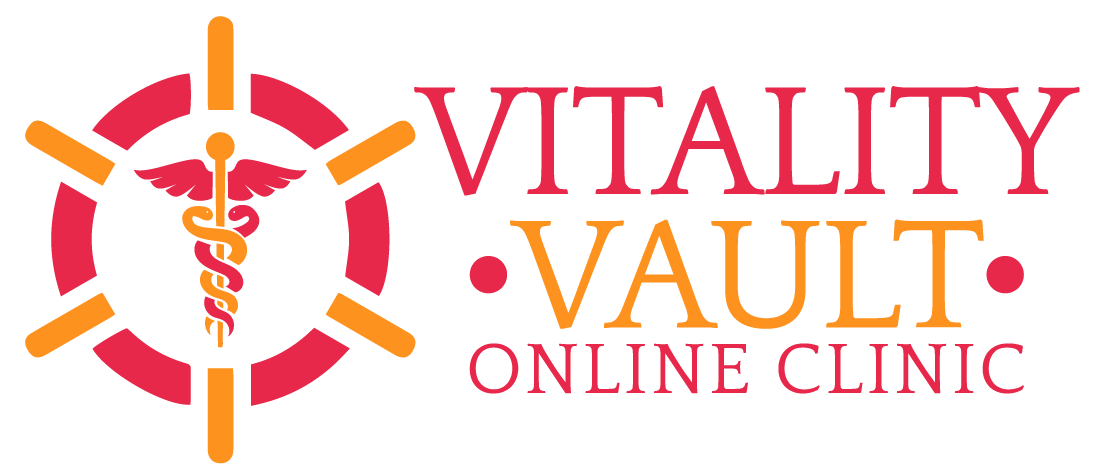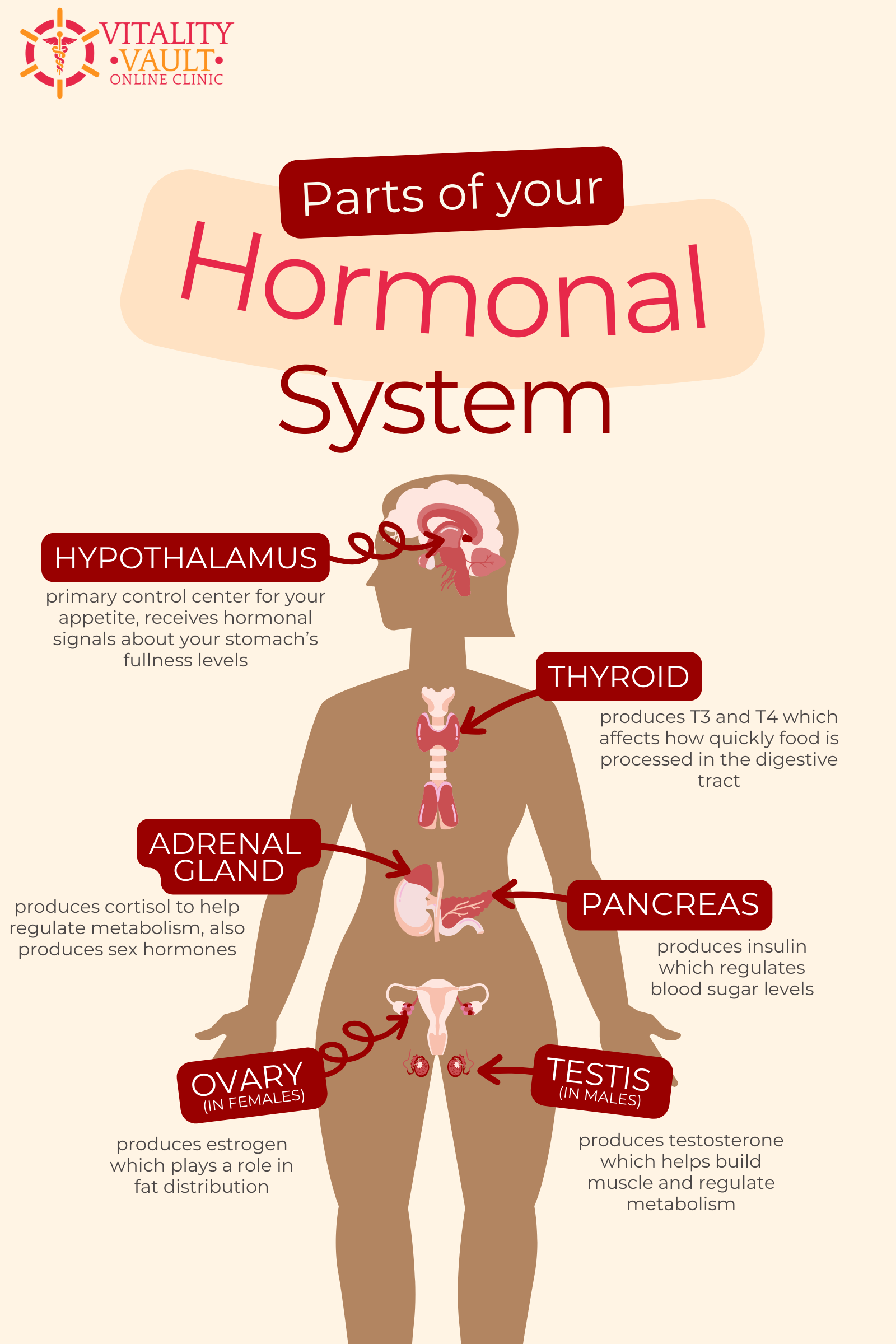The Role of Hormones in Weight Loss
When it comes to weight loss, most people focus on diet changes, caloric intake, and daily exercise. While these factors are crucial, our natural hormones are often overlooked! Our hormones regulate everything from appetite to how our bodies store & burn fat, so let’s talk about how they can impact your weight loss journey!
Your endocrine (hormonal) system is a network of glands and organs that produce hormones that regulate many of your body functions, including hunger, metabolism, mood, sleep, growth, and development.
Hormones that affect weight loss
Insulin
- What it does: Helps regulate blood sugar levels by moving glucose into cells for energy or storage.
- Impact on weight loss: Consistently high insulin levels (often caused by consuming too many processed carbs and sugars) can lead to insulin resistance, making it harder to burn fat.
- How to work with insulin: Focus on a low-glycemic diet rich in whole foods like vegetables, lean proteins, and healthy fats to prevent insulin spikes!
Cortisol
- What it does: Controls how your body uses fats, proteins, and carbohydrates for energy when you’re experiencing physical or emotional stress.
- Impact on weight loss: Elevated cortisol levels can lead to fat storage (especially around the abdomen) and increase cravings for sugary and fatty foods.
- How to work with cortisol: Practice stress-reducing activities such as meditation, yoga, or deep breathing exercises, and prioritize sleep to keep cortisol levels in check!
Leptin
- What it does: Signals to your brain that you’re full and should stop eating.
- Impact on weight loss: Leptin resistance (common in obesity) can disrupt the brain’s ability to recognize fullness, leading to overeating.
- How to work with leptin: Focus on weight loss through gradual, sustainable methods to improve leptin sensitivity.
Ghrelin
- What it does: Signals to your brain to eat and stimulates the production of gastric acid.
- Impact on weight loss: Ghrelin levels increase during dieting, making you feel hungrier and challenging your efforts to reduce calorie intake.
- How to work with ghrelin: Eat protein-rich meals, which can help suppress ghrelin levels and keep you feeling fuller longer.
Thyroid Hormones (T3 and T4)
- What they do: Triiodothyronine (T3), the more active form of your thyroid hormone, directly impacts your metabolic rate, meaning higher T3 levels generally lead to a faster calorie burn and potential for weight loss. While thyroxine (T4) is the primary thyroid hormone produced, it needs to be converted to T3 in the body to exert its full metabolic effect.
Impact on weight loss: An underactive thyroid (hypothyroidism) slows metabolism, making it harder to lose weight. - How to work with your thyroid: Include iodine-rich foods like seaweed, eggs, and fish to support thyroid health. Ensure adequate selenium and zinc intake, found in nuts, seeds, and lean meats.
Estrogen
- What it does: This hormone helps regulate fat storage, especially in women.
- Impact on weight loss: Lower estrogen levels can lead to increased fat storage, particularly in the abdominal area.
- How to work with estrogen: Eat cruciferous vegetables like broccoli, kale, and cauliflower to support estrogen metabolism.
Testosterone
- What it does: While commonly associated with men, women also produce testosterone, which helps build muscle and burn fat.
- Impact on weight loss: Low testosterone levels can lead to decreased muscle mass and a slower metabolism.
- How to work with testosterone: Incorporate strength training to naturally boost testosterone levels. Consume healthy fats, such as avocados, olive oil, and nuts, which support hormone production.
Start Working With Your Hormones!
Hormones are powerful regulators of your body’s weight management systems. By understanding their role and taking steps to balance them, you can unlock your body’s full potential for sustainable weight loss. Remember, it’s not just about cutting calories—it’s about working with your body’s natural processes. Once you start working with your hormones, you’ll find weight loss becomes more achievable and sustainable.



